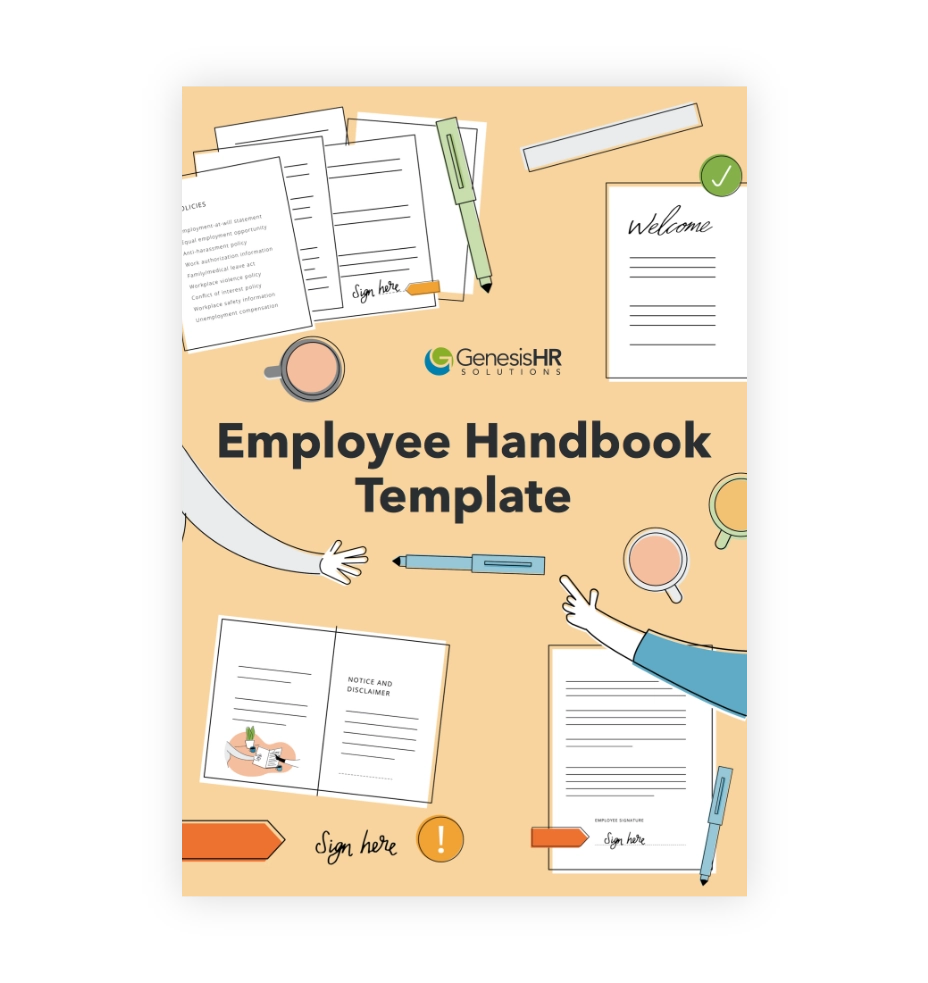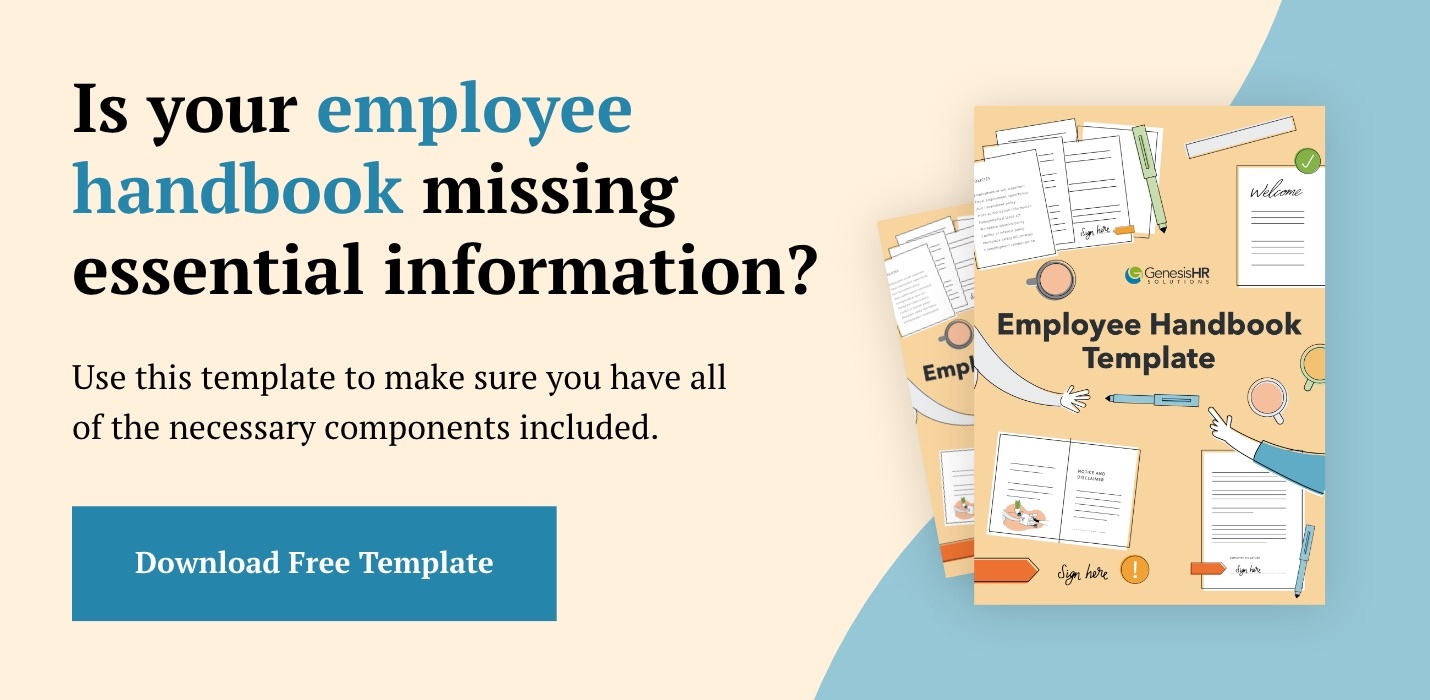We’ve talked about the importance of an employee handbook from our perspective, but we thought it would be interesting to hear directly from CEOs, business owners, and HR managers about how employee handbooks have made a difference at their companies. Check out their perspectives below—you’ll likely find something that surprises you!
Unfortunately, most employers don’t have a handbook that thoroughly addresses the processes and activities of their employees. Don’t let that happen to your company!
Download the Employee Handbook Template here.

The Importance Of An Employee Handbook
1. Katie Espinoza, Brand Manager at Rebrandly
“Our documents have brought everyone in the company onto the same page. We all understand the standardized procedures for how we handle things like internal communications, and how we organize the variety of systems and tools that we rely on to complete our work. Perhaps more importantly, [those documents] explicitly outline how we handle the systems that contain our customers’ sensitive data. Incorporating information from every department head means that every teammate understands how to handle their work, ultimately allowing them to do so in a faster, more organized way.”
2. Will Craig, CEO at LeaseFetcher
“At smaller scales, company culture and behavior are self-policing. If a company has 10 staff members, the CEO will probably interact and monitor them all personally, which allows them to correct and steer behavior. However, as your company grows, this way of working becomes impractical. A CEO cannot monitor 50 members of staff to ensure they are all acting “correctly.” There comes a growth point for all companies that you have to formalize and systematize things like company culture and behavior. Once it’s formalized, you can delegate responsibility to line managers and grow self-directing teams without worrying about whether they are developing siloed cultures.”
3. Trave Harmon, CEO at Triton Computer Corporation
“As a business owner, a handbook is essential for defining the policies on how your employees are to interact with the corporation. Adjustments to behavior, expectations, and methodologies cannot be inconsistent.”
Put an end to revolving-door employees. The Employee Lifecycle Roadmap will help you navigate your employees’ tenure, from hiring, to retirement, to everything in between.
4. Airto Zamorano, Founder and CEO at Numana SEO and Numana Medical
“Employee handbooks are important because they outline expectations and values for employees, but they can also cover the employer in case of any legal issues down the line. In the past, I’ve seen employee handbooks settle disputes with the Unemployment Department, and I’ve also had adjudicators ask, ‘Does it specifically say in your handbook that employees are not allowed to do that?’ Rules generally come about because of something that went wrong at some point, and employee handbooks allow employers to document all possibilities on an ongoing basis.
Employees genuinely want to know what’s expected of them, and what they can count on. A good employee handbook will give them that clarity. An employee handbook should be a living document that outlines what your company has learned over the years about how to cover the employer and the employees.”
5. Jonas Sickler, Marketing Director at ReputationManagement.com
“Employee handbooks prevent problems. Most businesses tend to draft their employee handbook around what happens in the workplace, but it’s also an excellent tool for protecting your brand’s online reputation. Companies can prevent damaging statements made on employee social profiles by including guidelines around how your brand should be mentioned online.”
6. Shawn Breyer, Owner at Breyer Home Buyers
“We used to have to spend a couple of months to teach people how to perform their tasks, how to handle customers, and how to manage contractors and relationships—and the onboarding process was very painful. We spent a few months documenting every process within our company to build an employee handbook and now our onboarding process is much smoother; we can train people in about two weeks on the majority of their role. This allows new employees to generate income for the company quicker, which compounds our earnings when you consider that we would have a senior person spending significant amounts of time training before.”
7. Wences Garcia, CEO at MarketGoo
“A handbook has made all the difference in onboarding new team members, as well as putting in writing the formerly ‘unwritten rules.’ When we started out as a bootstrapped startup six years ago, the idea of taking time or resources for an employee handbook seemed like a nonstarter. However as we’ve grown, information, policies, perks, and guidelines can’t live inside our heads anymore and we need to document and share the knowledge.
As a SaaS company, we, of course, use other SaaS tools to manage our handbook. We host our company handbook on Trello and have discussions about company culture on Confluence, which may lead to updates to the handbook. Being able to have open discussions and continuously updated, detailed documentation makes team members (especially in a remote-first company like ours) feel included and part of a dynamic company. Having a stale document that was created ages ago by someone who is no longer at the company is something I’ve seen surprisingly often. For me, the most important benefit has been the way it has helped build and document culture in a remote-first company.”
8. Stacey A. Giulianti, Esquire, Chief Legal Officer at Florida Peninsula Insurance Company
“Having an employee handbook is critical in order to set expectations for your staff. While employee handbooks may not need to initially cover every potential rub-point, it is important that each employee clearly understands their rights and responsibilities vis-à-vis the company and each other. When a company is small, managers often make disparate decisions for each employee. Unfortunately, having different outcomes for different employees is a surefire way to sow discontent among the ranks. An employee manual, simply and clearly drafted, informs each party of their precise duties.”
9. David Miklas, Labor and employment attorney at Law Office of David Miklas, P.A.
“An employee handbook can explain to staff and managers the standards expected for workplace conduct while also providing information on employee benefits, such as leave, and company policies. As problems arise, you can train your staff and incorporate real world examples right into an updated handbook. In the world of #metoo, it is crucial that employers clearly communicate the prohibition against discrimination and harassment, and advise employees how to make a complaint.
As a labor and employment lawyer, I sometimes only become involved after a lawsuit has been filed against the company. Having an employee handbook gives the employer an opportunity to make expectations understood, which can minimize misunderstandings (which often drive lawsuits). Also, it is much easier to handle a discrimination or harassment complaint if the employee reports it internally and early on. If the employee does not know how to report it internally, I have seen them report it to the Equal Employment Opportunity Commission, Department of Labor, an employment lawyer, and even the police department. Most businesses would not want the public to see police cars arriving at their business.”
10. Bill Hughes, CPA and Managing Member at Business Allies Group LLC
“An employee manual/handbook is essential to legally running your company, no matter how many employees you have. It instills fairness, encourages equal treatment, and establishes employer expectations from the first day of employment. In this day of frequent litigation, it is vital that your company have an employee handbook. There are so many local, state, and federal laws that must be followed by an employer. The handbook can establish these as company policy, protecting the employer from legal action. One of the most important aspects of the employee handbook is that it can’t just exist, it has to be implemented and followed by all employees and the owners of the business.”
11. Nate Masterson, HR Manager for Maple Holistics
“Employee handbooks eliminate stupid questions. Employees don’t like asking stupid questions, and they will sometimes avoid doing so in favor of making a mistake. Having an employee handbook helps outline best practices and company values so that the employee can operate autonomously.”
12. John Moss, CEO at English Blinds
“The employee handbook has proved to be a great way for us to introduce employees to the values and culture of our business and set out the standards for employment. Providing a clear understanding of what is expected of our staff has helped to create healthy workplace relationships and even resolve some issues before they arise. It’s also proved to be beneficial in helping to retain some of our best and brightest members of staff by showcasing some of the benefits we offer to employees.”
Learn more about employee handbooks—and how to perfect (or create) your own.
Just click here or on the image below to access our employee handbook template—absolutely free. Our expertly crafted template lists all the mandatory items you need to include as well as some optional, recommended items you should consider adding. Download it now!





